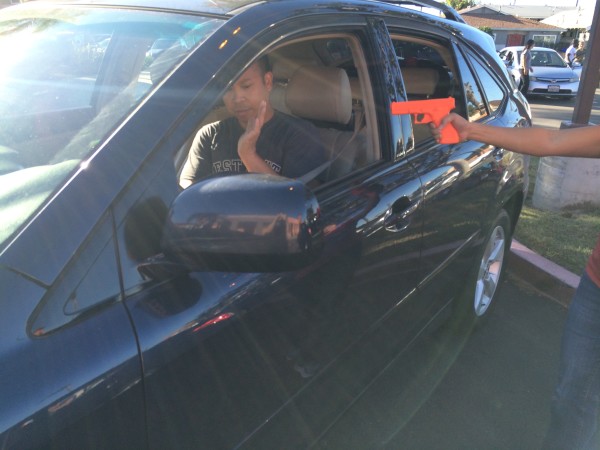

Krav Maga Competitions?
Most combat sports have some form of competitions or tournaments to determine the best athletes in the specific discipline. Although Krav Maga training focuses heavily on fighting and self-defense skills, it has no competitions, tournaments or competitive bouts. The question is why?
All competitions must have very clear rules and regulations. A perfect example is UFC, which started with little rules and no weight categories and with time evolved to have over 8 weight classes and very strict set of rules (such as no kicks to a head of a downed opponent, no north to south elbows, no strikes to the groin, etc.). Furthermore, all combat sports and their respective competitions have a very specific definition of winning and losing, usually through knockouts or submissions, or accumulation of points via striking, takedowns, knockdowns and ring/octagon control.
Krav Maga, on the other hand, is not a sport. The ultimate goal in Krav Maga is to teach students to do whatever is necessary to defend themselves and their loved ones. As a result there are no rules and restrictions to inhibit the ability of the practitioners to achieve this ultimate goal. This means that winning for a Krav Maga practitioner may be achieved through de-escalation and avoidance of conflict all together, or through some level of physical confrontation. The Krav Maga training we do daily, specifically focuses on these real world situations.
But as soon as competition is introduced into a self-defense system such as Krav Maga, the focus of the training will naturally start favoring preparation for these tournaments. Thus the techniques and principles taught will be more focused on those that are in line with the rules and regulations of the competitions while ignoring the rest, thus compromising the self-defense focus of the system. For example, if an MMA fighter wants to compete in MMA, he focuses his training specifically on that, and does not waist his time learning how to defend against armed attackers or multiple attackers, or anything else he is never to face in an octagon.
The other downside to having competitions in Krav Maga training is risk of injury. Obviously given the aggressive nature of the Krav Maga techniques, there have to be restrictions on the competitors’ actions during the bout to avoid serious injury and death. But as already discussed earlier, introducing restrictions and rules into Krav Maga training will take away from the self-defense element of the system and will compromise the integrity of Krav Maga as a whole. But even with some rules and regulations in place, competitions often lead to a higher risk of injury then regular training. During regular training, both partners work together to help each other improve and progress. But during competitions people tend to push themselves harder due to pride, ego, prestige and/or monetary compensations. There is a very concrete mentality in sports and competitions; one person has to win and the other has to lose. Both will give it their all to succeed, and often injury is a price they are willing to pay.
Of course one may argue that you can expect to be injured to some degree if you were to defend yourself in a real world altercation. That may be the case, but I’d rather get injured once because I had no other choice but to defend my life or the lives of my loved ones, then to constantly get injured and reinjured in competitions. Constant injuries would prevent me from further training, limit by ability to improve and keep me unfit to defend myself if I were to really get attacked outside of the training environment.
Students that come to us for self-defense training do not want to be professional fighters and do not care about competitions. They care about learning lifesaving skills that will protect them and their families. If they were to constantly sustain injuries in training, then they would be unfit to defend themselves and loved ones when it really mattered, and thus their training would be purposeless. Imi Lichtenfeld, the founder of Krav Maga, had the following rule: Don’t get hurt. This applied to the street and during training. We adhere to that rule at Impact Krav Maga and share Imi’s outlook on training. Below is some rare footage of Imi Lichtenfeld speaking about the topic of competitions and injuries during training to an American audience in the 1980’s. Please take a moment to listen, and let us know what you think.
